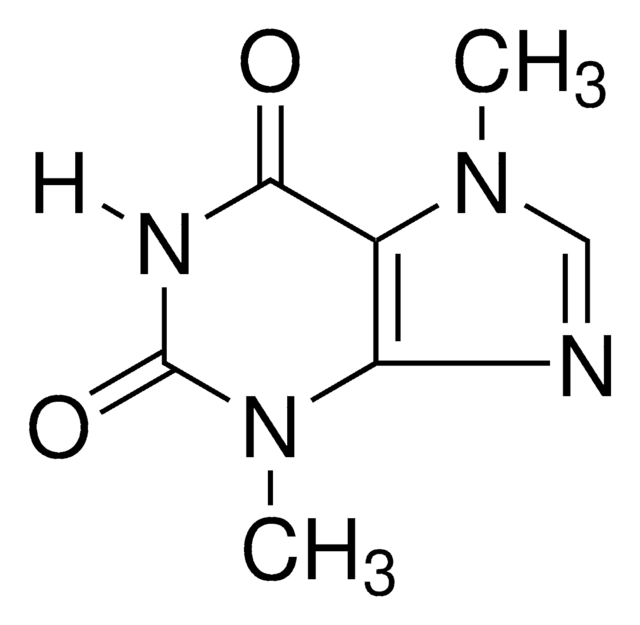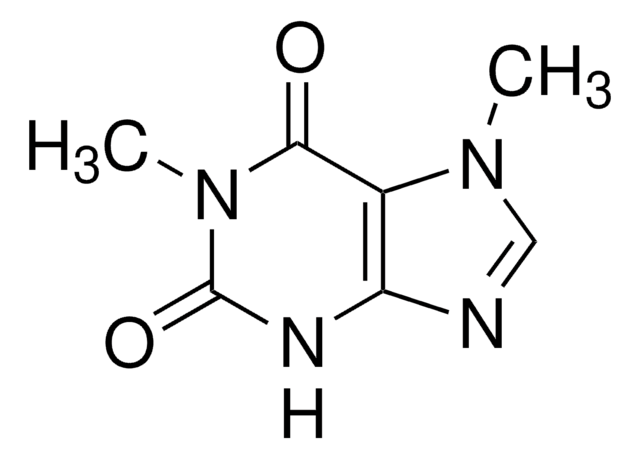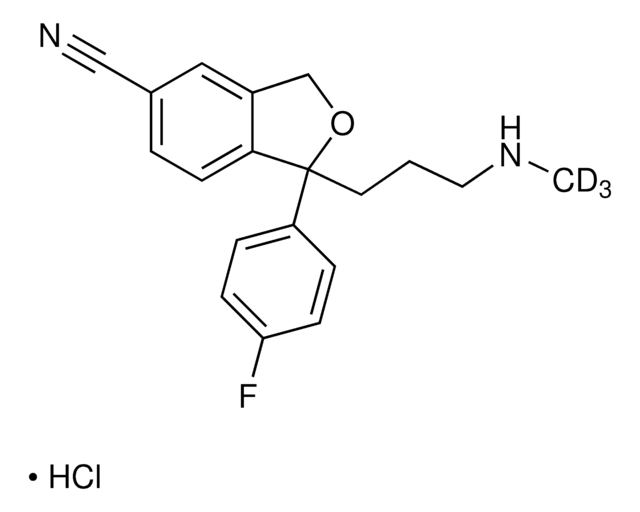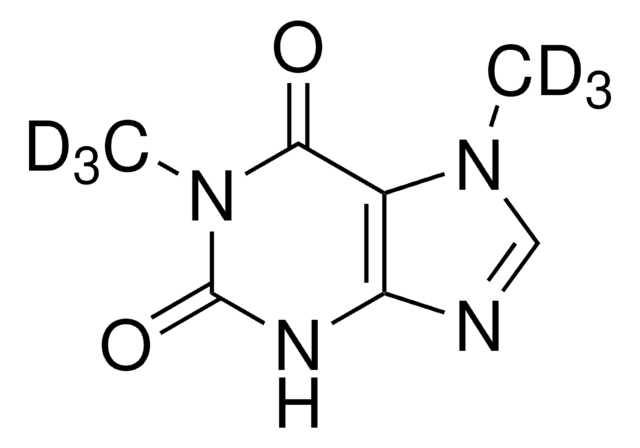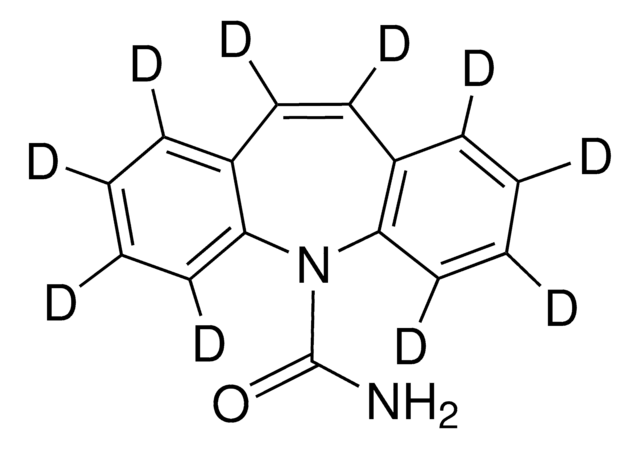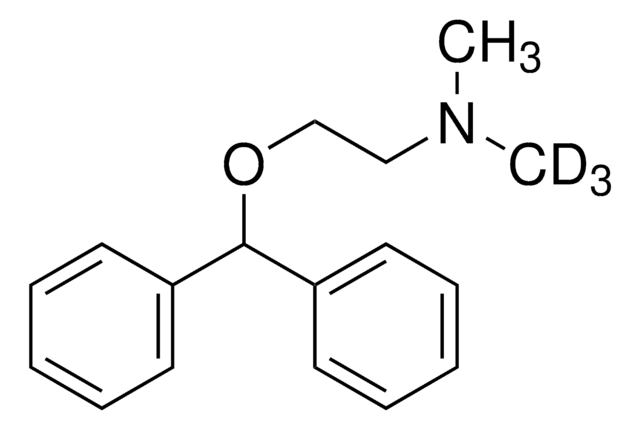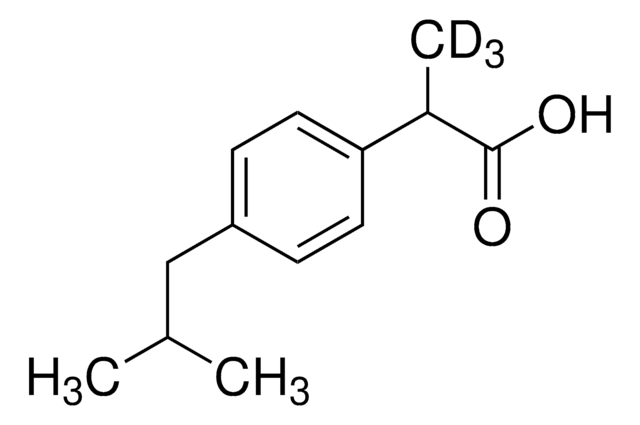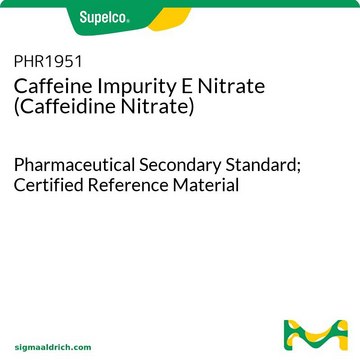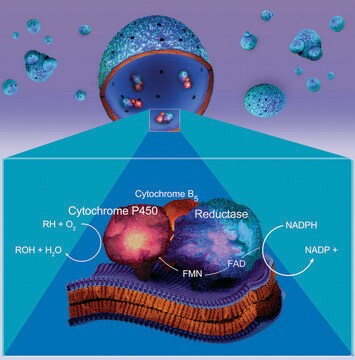Wichtige Dokumente
IMPC-051-03
Paraxanthin
1.0 mg/mL in methanol, ampule of 1 mL, certified reference material, Cerilliant®
About This Item
Empfohlene Produkte
Qualität
certified reference material
Qualitätsniveau
Form
liquid
Leistungsmerkmale
Snap-N-Spike®/Snap-N-Shoot®
Verpackung
ampule of 1 mL
Hersteller/Markenname
Cerilliant®
Konzentration
1.0 mg/mL in methanol
Methode(n)
gas chromatography (GC): suitable
liquid chromatography (LC): suitable
Anwendung(en)
pharmaceutical (small molecule)
Format
single component solution
Lagertemp.
room temp
SMILES String
CN1C(=O)Nc2ncn(C)c2C1=O
InChI
1S/C7H8N4O2/c1-10-3-8-5-4(10)6(12)11(2)7(13)9-5/h3H,1-2H3,(H,9,13)
InChIKey
QUNWUDVFRNGTCO-UHFFFAOYSA-N
Allgemeine Beschreibung
Rechtliche Hinweise
Ähnliches Produkt
Signalwort
Danger
H-Sätze
Gefahreneinstufungen
Acute Tox. 3 Dermal - Acute Tox. 3 Inhalation - Acute Tox. 3 Oral - Flam. Liq. 2 - STOT SE 1
Zielorgane
Eyes,Central nervous system
Lagerklassenschlüssel
3 - Flammable liquids
WGK
WGK 2
Flammpunkt (°F)
49.5 °F - closed cup
Flammpunkt (°C)
9.7 °C - closed cup
Hier finden Sie alle aktuellen Versionen:
Analysenzertifikate (COA)
Leider sind derzeit keine COAs für dieses Produkt online verfügbar.
Wenn Sie Hilfe benötigen, wenden Sie sich bitte an Kundensupport
Besitzen Sie dieses Produkt bereits?
In der Dokumentenbibliothek finden Sie die Dokumentation zu den Produkten, die Sie kürzlich erworben haben.
Kunden haben sich ebenfalls angesehen
Artikel
Xanthine is a purine base found in most human body tissues and fluids as well as in other organisms. Methylated xanthines (methylxanthines), which include caffeine, paraxanthine, theobromine, and theophylline, commonly used for their effects as mild stiµlants and as bronchodilators, notably in the treatment of asthma symptoms. This application shows the efficient separation of several common xanthines and may be applied their analysis in any number of desired matrices.
Unser Team von Wissenschaftlern verfügt über Erfahrung in allen Forschungsbereichen einschließlich Life Science, Materialwissenschaften, chemischer Synthese, Chromatographie, Analytik und vielen mehr..
Setzen Sie sich mit dem technischen Dienst in Verbindung.